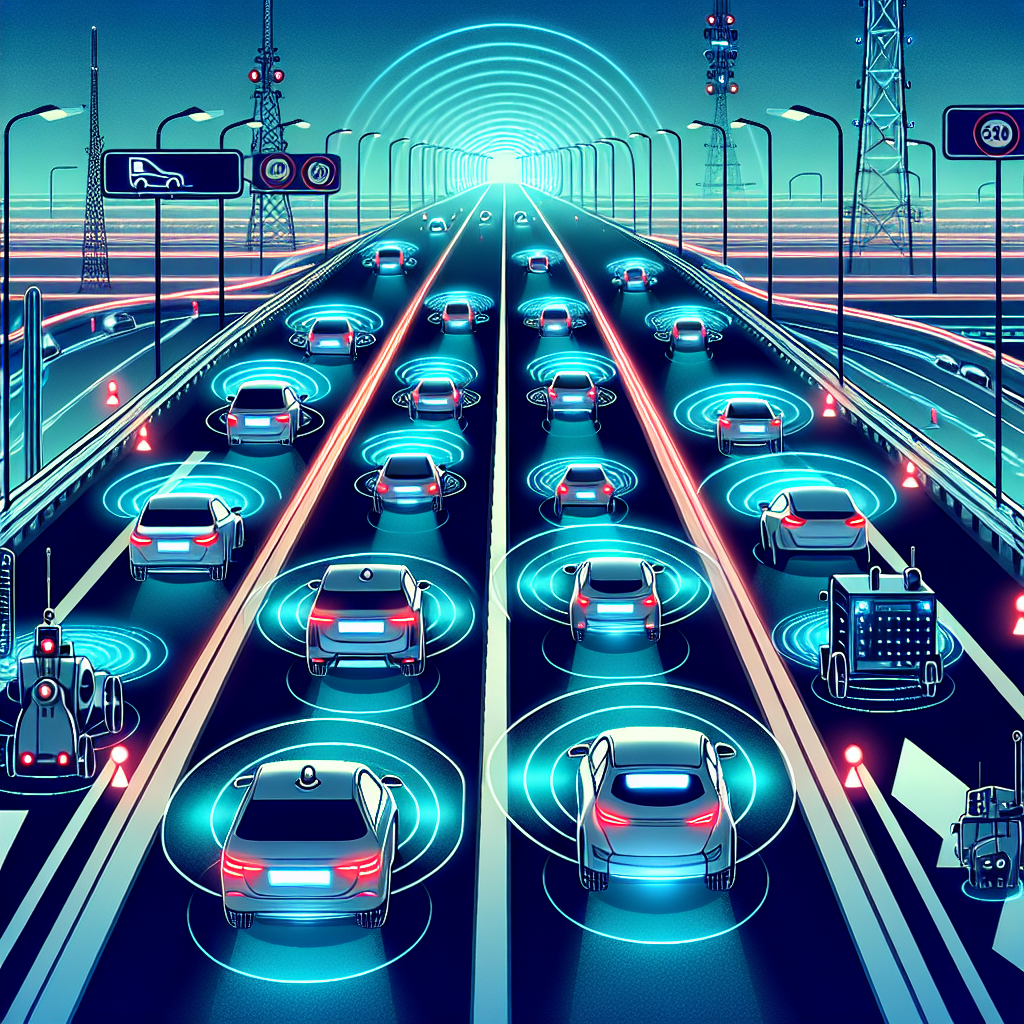A Look into the New DMV Rules for Self-Driving Car Communication
Introduction
Self-driving cars are becoming more common on our roads. So, it’s important to have rules that keep everyone safe. The latest DMV rules about how these cars should communicate are really important. These rules help make driving safer, control traffic better, and help self-driving cars fit into our transportation systems.
Section 1: What is Car Communication?
What It Means and How It Works
Car communication is a way for self-driving cars to talk to each other and to things like traffic lights. These communication methods are really important. They help cars know what other cars around them are doing and make sure they work well together.
Why It’s Important
When self-driving cars communicate, it helps make driving safer. Cars can avoid crashing into each other, and traffic moves more smoothly. These communication tools are key for making sure that different self-driving cars can work together.
Section 2: What’s New with the DMV Rules?
What Changed?
The new DMV rules focus on how important communication is for self-driving cars. These rules include strict requirements for keeping car data safe, making sure car systems can talk to each other, and setting common communication rules.
What’s Different from the Old Rules?
The old rules didn’t really say much about how cars should communicate. Now, the rules are stricter to keep up with technology changes and make sure self-driving cars can all work together well.
Section 3: What Are the Main Points of the New Rules?
Standards for Communication Systems
The new rules clearly explain how communication systems in self-driving cars should work. These systems must be strong and reliable, even in tough conditions.
Keeping Data Safe
To keep data safe, the rules say car makers must use top-notch security measures. This helps keep car data secure and private through things like encrypted messages.
Making Cars Work Together
A big part of these rules is that self-driving cars made by different companies need to work together. This makes the transportation system more connected and lowers the chances of communication mix-ups.
Section 4: How Do the New Rules Affect Car Makers?
Impact on How Cars Are Made
Car makers now have to include high-tech communication tools in their cars. This means they might need to work with tech companies to meet the new communication standards.
Challenges and Opportunities
Following these new rules could cost more and take more time to develop new cars. But it also encourages new ideas and teamwork between car and tech companies.
Section 5: Good Things and Possible Problems
Public Safety and Traffic
The best thing about these rules is that they make driving safer. When cars talk to each other and to traffic systems, it lowers the chance of accidents and helps traffic flow better.
Enforcing and Following The Rules
Even though these rules help a lot, getting everyone to follow them can be hard. It’s also crucial to keep these systems safe from cyber threats, which can be a complex job that needs constant checks.
Section 6: What’s Next?
Changing Rules
As technology gets better, these rules will probably change too. They will need to cover new ideas like AI and new ways for cars to communicate.
Reaching All Areas
These communication rules will help more self-driving cars to be used everywhere, not just in big cities but in the countryside too, bringing their benefits to more people.
Getting Feedback and Making Changes
The rules will need updates based on feedback from car makers and data from cars already on the road. This ensures the rules are up-to-date and helpful.
Conclusion
The new DMV rules for how self-driving cars communicate are a big step in making sure these cars are safe, work well together, and fit into our roads. It’s important for everyone involved to keep up with these changes to use self-driving technology in the best way.
Call to Action
Stay informed about the newest rules near you and join talks about how these changes will affect transportation. If you work in car tech, share what you know and join events focused on these exciting changes. Visit Tags Clinic at 3845 University Ave, San Diego, CA or call at 619-777-9046 for a consultation.
}
